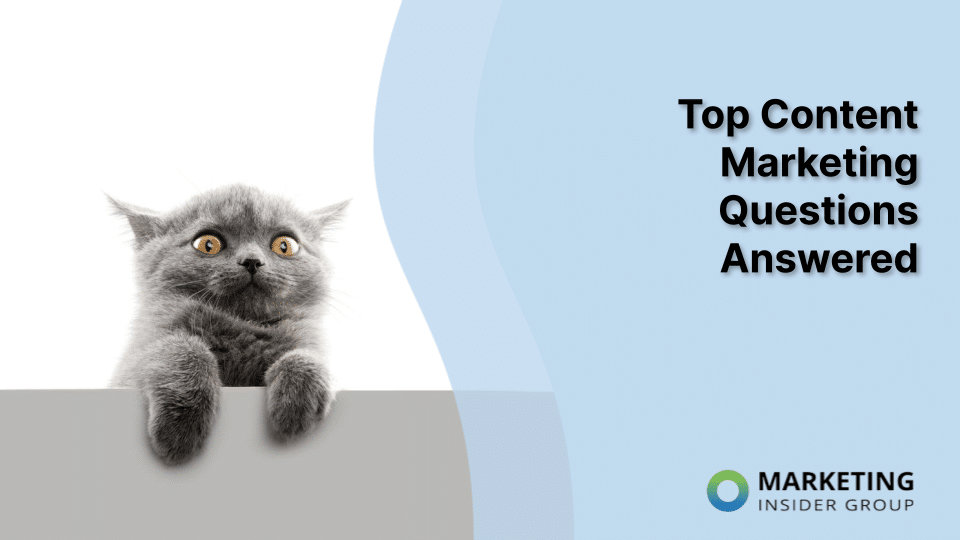
Top Content Marketing Questions Answered
What does a good content marketing strategy look like? Why is content marketing king? How do you get it right, measure it, improve it?
Whether you are new to the riveting world of content or are a self-ascribed expert (i.e. content addict), there is always more to learn. In fact, it is an inquisitive nature and a desire to know more and try out new things that has allowed content marketing to evolve into the dynamic, multi-dimensional, ever-shifting medium that it is today.
You may have noticed that we’re talking about more than a marketing tactic. What’s going on here is that marketers have become storytellers and concept creators. We’ve applied the age-old notion of communicating through narrative to traditional advertising concepts, enabling us to build a bridge with our audience. Never before has marketing been as rewarding, or as impactful, as it is today.
From the brilliant brand videos you’ll find on YouTube, the ones that can make you laugh or cry – and subconsciously bond with a brand – to the informative blog posts that have become a part of all our lives, great content is everywhere.
They say ‘content is king’, but, if handled well, it is far more than this. Content, along with the digital innovations that have facilitated it, is transforming the way brands and businesses view one another. In effect, we’ve all become a little more human.
I’ve put together a list of some of the most important content marketing questions marketers at all levels — from CMO to SEO intern — have today. They may help you on your personal quest for content answers.
When did content marketing start?

While we may think of content marketing as a modern concept, brands have been using stories to convey ideas to their audience for hundreds of years. And of course, narrative has been a medium of communication for as long as the human mind could comprehend a story.
Some early classic examples of content in action are Benjamin Franklin’s Poor Richard’s Almanac, first published in 1732, and the American Bee Journal, launched by Samuel Wagner in 1861. The American Bee Journal is still published today!
What’s the simplest way to explain content marketing?
Content marketing is the gap between what brands produce and their audience actually wants. Your level of commitment to becoming the leading destination of helpful insights for your audience defines your content marketing.
Is content marketing for everyone?
I think if I were a direct response marketer, I maybe don’t need content marketing as much as products where customers do a lot of research. That’s why financial service firms were early in content marketing: there’s a huge need for information in the customer journey. But even for direct response businesses, I would think you would want to educate your consumers early in the buying journey.
What is NOT content marketing?
Bryan Del Monte, Managing Director of Clickafy Media Group, makes an excellent point about understanding what exactly content marketing is and isn’t. He explains it’s not really about the content – or even about storytelling – but rather about conveying value via the appropriate media.
“Content marketing is less about the sale of a product/service than that of an idea and the brand behind the idea. For this reason, it can ultimately be stronger than advertising in driving sales – and it explains why competitors cannot displace content-rich brands like Apple and Harley Davidson.”
While Del Monte is not comfortable with the term ‘story’, we can still see significant elements of storytelling in successful examples of modern marketing. It’s the ambiance created, the environment a prospect can step into when they click on your website, a feeling evoked. That is the story and conceit; It’s the thread that connects every piece of your content strategy.
Take Apple’s Carpool Karaoke as an example. Content for your viewing entertainment, and one more reason to accept the Apple brand as an essential part of modern life, bringing us the music and videos we want through the convenience of Apple technology. No traditional ad is required to convince and convert; just the concept of Apple’s value, and the demonstration of how it integrates into our lives.
Content marketing isn’t advertising. It’s not a billboard or poster. Nor is it a television, radio, or online commercial. It’s value conveyed through ideas, stories and concepts.
Why does content marketing work all the time?
Content marketing works because it uses the more subliminal power of attraction, rather than shouting from the rooftops about your existence and importance, as in the case with advertising.
By demonstrating value and worth, marketers are convincing consumers that a particular brand should be a part of their lives. Want to improve your small business with better accounting and informed financial decision-making? Read the QuickBooks blog. Need some inspiration for cooking healthy meals? Follow Whole Foods on Twitter for a constant stream of ideas and recipes.
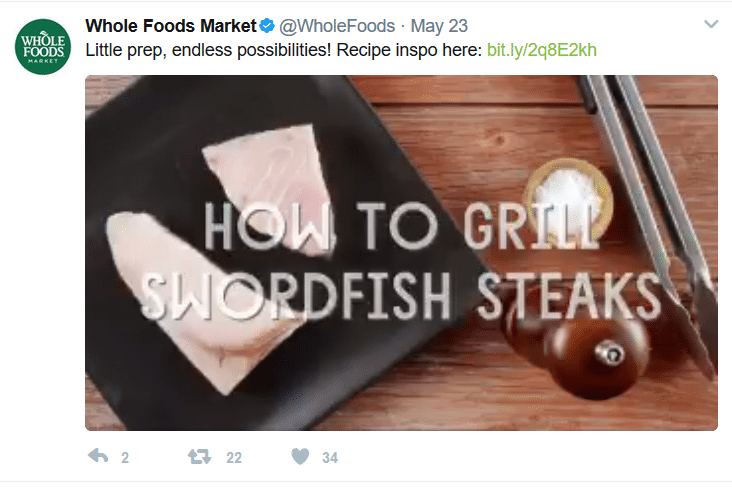
These brands, through content marketing, have become valuable not just because of the products and services offered, but also by enhancing people’s lives with easy-to-access, helpful information. This is why content marketing works. Consumers seek out the brands they most engage with.
What’s the difference between content marketing and social media?
A brand’s social media sites can serve as channels for marketing content, but there is a key distinction between content and social media marketing. Even though the two should be included in a cohesive overall marketing strategy, it is important to have a strategy for each.

Content is what your audience consumes, which then motivates them to sign up for your newsletter, subscribe to a service, or make a purchase. With social media, the focus is on engaging consumers. This is where consumers can reach out to one another or directly to a brand.
Can you generate leads with content marketing?
Content marketing generates leads because it helps to attract more potential customers to your business. With SEO and social media marketing, you can direct organic (and qualified) traffic to your brand’s website’s blogs or to other content. Then, you have your chance to demonstrate value.
Once you do that, some of those viewers will make their way to your lead generation pages and, click your glowing CTA buttons and fill out your data capture form. Hey presto, you’ve got another lead.
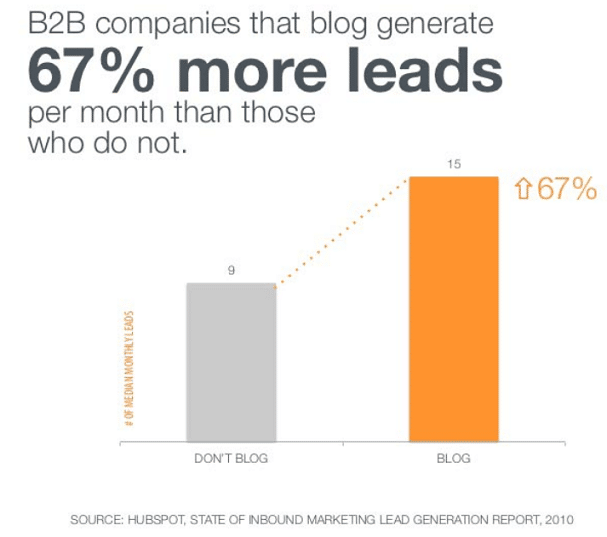
The best way to generate leads with content? Blogs.
If you were starting a content marketing program from scratch, where would you begin?
I start at the same place every time: Keyword research. Start by thinking like the target audience, quantifying the questions they ask Google, checking out the sources that show up in the top position in Google, understanding the categories and structure of the content that gets ranked and shared. Anyone can do this research. Then you have to build a content marketing destination that is best structured to answer those questions.
At all times, remember why your business exists. For example, food companies exist to feed people. If you do that, keywords and ideas will never stop coming to you.
A basic content marketing strategy includes a gap analysis (where you are vs where you want to be), a mission statement or objective, an editorial strategy, budget allocation against technology, content and distribution, a team accountable to getting it done, and a measurement framework.
How do you decide what your content will focus on?
Do you want your content to attract more traffic, convert visitors to leads, or nurture those leads toward a sale? All of the above? Something else like changing existing attitudes or repairing your reputation?
When creating content, you need to know why you’re creating it. That is determined by researching your ideal customers and their buyer journey. Those two things are the most important determinants of content marketing success.
Great content is educational: remember that your ultimate goal is to solve your persona’s problems – and the best way to do that iis through education.
Make sure that your content is focused on your buyers at least 80% of the time. And for the remaining 20% when you talk about your company, focus on benefits to the customer rather than your product features.
The people in your C-Suite may be afraid to tell you this, but your customers don’t care about your company and its products. They care about themselves. That’s why when you talk about your products, frame it in terms of the benefit to your customer rather than a recitation of product features. Benefits tie into emotional desires. Features are devoid of emotion.
Ask how your content is going to remain anchored in the buyer’s head rather than your product catalog. Here are some of the ways your marketing people should be mining for what’s keeping your prospects up at night:
- Keyword research
- Internet forums
- Popular industry news
- Sales/support FAQs
- Your persona’s goals
- Your persona’s challenges
Before creating any content, require your people to answer this question: Who is this content going to help? If the answer is not clearly your prospects or your customers, instruct them to stop and readjust.
Why does so much content suck?
Behind every piece of bad content is an executive who asked for it. And we all know this is true. Most people want to do meaningful work. But for some people, “meaningful” means “what my boss asked me to do.”
Businesses struggle with being ego-centric by nature. Add the mass of good people blindly following bad leaders and you get the mass of crap we see today.
We are all responsible for solving this problem. Behind every piece of great content is a marketer, publisher, author who passionately and empathetically sought to help his or her audience.
But how do you teach empathy to an executive who has none? The answer is fear. You have to show them that if you don’t create the best answer to your customers’ questions, someone else will.
How will you distribute content?
“Build it and they will come” does not work in content marketing. If the content is not delivered to the right people at the right time, it will be largely irrelevant. This is where you should hear about social media strategies (linked to the buyer persona’s habits and usage), marketing automation workflows, email newsletters, guest posting, speaking events, etc.
Consistency is equally important when asking about content distribution. Just like compound interest, consistency pays handsome dividends in the long term. For instance, will the blog posts be going out every day? Once a week? How about premium content like ebooks? One a month? While frequency can get you faster results, consistency is what prevails.
Under what circumstances does content marketing fail?
This is one of the most important content marketing questions to answer. Content marketing doesn’t always work. The biggest reason? A lack of strategy. The best content marketing strategies are uniquely suited to the specific needs of each brand.
This means you have to take the time to think about what would work for your audience. What content forms would your buyer personas prefer? What style and personality would engage them the most? What content schedule would offer enough, without being overwhelming? A well-thought-out strategy is necessary for success.
How do you measure content marketing?
There are numerous ways to track the success of your strategies. What you use depends on the metrics that matter to you, how equipped your marketing software is to automate a lot of your data gathering for you, and how good you or someone on your team is at data analysis.
Just asking this question “What metrics are we going to measure?” at the outset can have an enormous impact. Many marketing and agency people with traditional backgrounds are not used to being held accountable for their activity. Now they can. And you’ll be surprised and pleased at the positive effect this has.
Measurement is not an end in itself. The purpose of measuring and analyzing your content marketing activities is so that you can do more of what’s working and less of what’s not working. Then, give some thought to why things are working or not working. Can that inform future content creation?
Don’t be bamboozled by meaningless vanity metrics such as the number of Facebook likes or Twitter followers (those can be cheaply purchased). Instead inquire about things like:
- Number of visits
- MQLs and SQLs generated
- Social proof, shareability
- Inbound links
- Content performance by author
- Content performance by topic
- Content performance by format
Whether you have a dozen metrics or you just focus on the essentials – like organic traffic, conversion rates, lead generation, and your ROI – simply charting your progress over time will let you know if your strategy is helping you reach your marketing goals.
What is the value of a long-term content strategy compared to a traditional campaign-focused approach?
Based on my definition, content marketing is content the audience wants and campaigns include promotion that no one wants and that we try to avoid.
So in the long term, content marketing is building more and more reach, engagement and trust that allows more people to interact with your brand, and ultimately to buy from you. Content marketing is an asset that delivers increasing return over time. Campaigns go out, produce some short-term bump and then you have to start all over again.
What’s the #1 trait to look for when hiring a content marketer?
The one thing I look for is anyone with the ability and track record of creating content at scale (volume) that gets people to read and share without breaking the bank. It starts with great content (publisher mindset) but you also have to understand budgets and political constraints (management and operational expertise) and how to measure what works (analytics).
Ok, that was more than 1 attribute so I’ll try to combine it into one trait required for effective content marketing: know how to create great content at scale that doesn’t break the bank and performs well in a measurable way.
How important is it for marketers to use an editorial calendar?
Editorial strategy requires a commitment to publishing content an audience actually wants, within a small group of topics, and then committing to publishing on a regular and consistent cadence.
The best content marketing brands publish every day or more on each topic they commit to covering. I think the strategy, the commitment and the cadence are more important than the calendar. My one rule of content marketing is to make sure there is an appropriate balance of helpful vs. promotional content.
One final point: managers shouldn’t make editorial decisions. Editors should. Brand content editors should advocate for quality and customer focus. And manage the calendar and those contributing to it.
Will noise and saturation negatively affect your content’s ability to reach people?
There will always be an opportunity for brands to join the conversation around a topic that they are connected to.
If you are a technology company, you likely have dozens, hundreds, or thousands of employees and customers who can join the conversation in a way that provides value to the brand.
So no, we are not at the saturation point and I don’t see us ever reaching it.
Let me put it another way: There is so much bad content that is never used or seen by customers and there is so much wasted spend inside companies that it will be a long time before we can optimize it all to fully drive customer and business value.
What’s the difference between B2B and B2C content marketing?
There is no difference really. We’re all people. Buildings don’t buy stuff, people do. The obvious difference is in the amount of complexity and information required and the number (and type) of people involved in B2B purchases. So, actually when it comes to B2B, people don’t buy stuff, committees do. But the process to deliver that information in the form of content marketing is generally the same.
Can small businesses with minimal budget play?
Content marketing might be even more important for small businesses. When you have a small budget and a marketing department of one, you aren’t going to buy TV ads. You do content marketing. You become a source of information in your niche and you can gain your fair share of the market.
Where is content marketing going?
Do I need to convert all my blog posts to video? Will AI take over our lives? Will newspapers ever go away? When will technologies we keep hearing about like VR and AR take hold? Will something that hasn’t been conceived today change the face of content marketing tomorrow?
Consumers have endless options when it comes to choosing which content to consume and even how to consume it. Where content marketing goes depends on what they want. This whole content world has come about as a response to more sophisticated consumer expectations.
The biggest question for content marketing is then, what will they expect next? When we content marketers have the answer to this question, you can bet that we’ll be there to meet them.
Many companies are beginning to realize that their marketing has to change because the way people buy has changed. To ensure that your content marketing is working hard and smart, ask these strategic questions to set the proper course and convey to your organization that you expect successful outcomes.

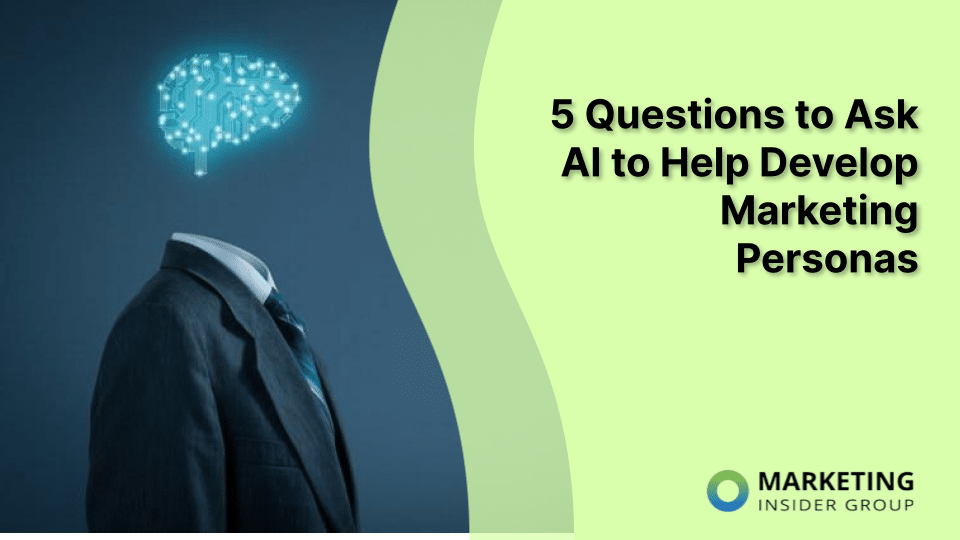
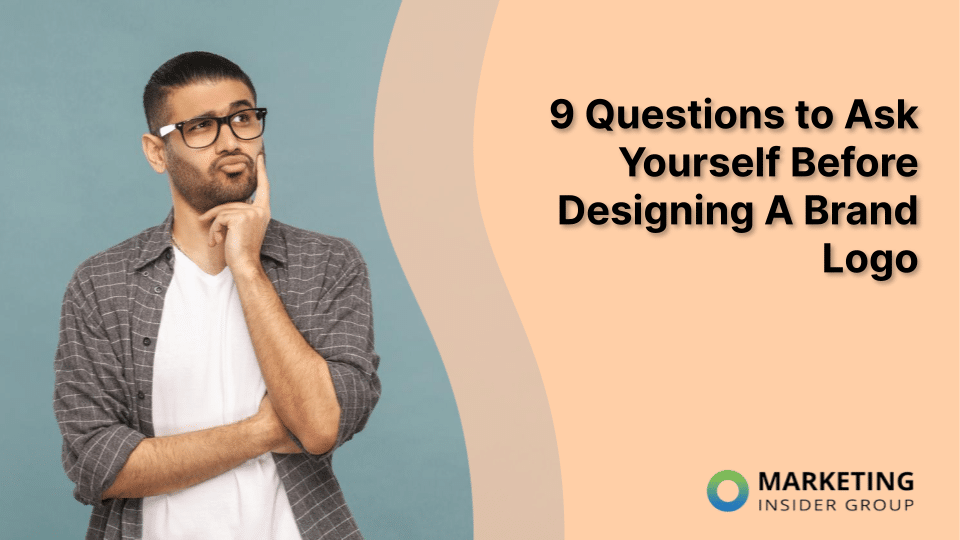




Glad you liked that piece for Adweek… 🙂 I just saw your blog article this morning.
I did that piece for Adweek what seems like a few years ago (honestly, all I remember was that I was in Mexico on vacation when it was published and people were texting me)…
Here’s a funny thing about that piece… so basically I took a SHELLACKING from people like Joe Pulizzi over at Marketing Profs, etc. He and his cronies on his podcast also took me to the woodshed…
I didn’t care… and Pulizzi walks the dog back every time I mention he shellacked me… but the reality is that the content marketing world believes in content for the sake of content… or so it seems…
And that’s just stupid. And when I wrote that piece for AdWeek.. I had tried for years to make a content first strategy work…
And I couldn’t do it… which is why I kind of said out of frustration – if content doesn’t generate revenue then why the hell do it…
I’ve written some really amazing pieces of content over the years. And the best way to describe what they do for your business is like lightening hitting a field of lightning rods…
You get a MASSIVE jolt of energy. When Ricky Gervais featured to his Twitter, Facebook, and Instagram following a piece I wrote about him… yeah – I got zillions of people…
… for like two seconds.
And I’ve done that more than once… and yeah – each time… massive lightning bolts…
Problem is this – you can’t run a city (and by way of analogy a business) waiting for lightning to strike now can you?
I mean everyone in the city can’t just suddenly wait for a hundred kabillion volts and amps for a zillionth of a second…
So trying to drive leads on content alone is really really rough… but that’s the core of what the content marketing world suggests…
Write Epic Shit – money falls from the sky.
It’s total BS. Truly. I should know – I’ve written “Epic Shit” on so many occasions… and made the lightning hit exactly where I want…
But none of it lasts…
So what does work as a strategy looks like this…
You need great content. But you need it because your PAID media is going to generate awareness… but your EARNED media (aka content marketing) is going to make that audience more stick and give you a better chance to generate leads from them other than the one whack at the apple through a lead gen approach…
So you run your ads… and those ads lead into funnels… but some of the people are going to leak out…
When they do… what will they likely do? Well the obvious one is go away completely. You can’t do much about those. But the next obvious one is – they’re going to jump out of the funnel you want them to go through… but they are like “Hmmm this looks somewhat interesting, let me do my own thing….”
And that’s where they’re going to look at your website, etc… and that’s where you need to have content that is relevant, engaging, useful, and deepening of a relationship…
So you have a power plant (paid media) generating little bits of lightning for your city – lots of awareness… etc… but when the big bolt hits… you’ve got ways to store that energy a bit and feed it back into the city…
That’s the approach I do now since I wrote that article. I think the most effective lead generation strategy has a strong paid media component… to generate awareness and make sales (generate leads)… but really good content is laid all over the place for the people who fall out of the funnel in the hopes that they’re lured passively back to you and the paid media isn’t just one and done…
BTW – totally agree video is where it is all going. Especially in paid media… and right now… video has the best legs…
Video is also the hardest to do… which is why I suspect for at least a little while longer – video will largely remain untouched except by people who know how to do film and TV well… but give it a few more years… and Video will be like blogging – everybody and their grandmother will be putting up videos and expecting to make a trillion dollars…
Anyways… thanks for the mention… feel free to reach out if you need anything.
Sincerely,
Bryan
I like the way you mentioned will instagram take over. But is there any way to promote articles in instagram? I guess no. If they add that feature they will surely take over. Thanks for this amazing article.
Hey Bryan, thanks so much for your amazing comment. I’ve been meaning to respond for 2 days now and wanted to make sure I had the time. So I think you and I agree on the strategic point. 100%.
However, I have argued for years that content marketing is the central point of an integrated paid, owned and earned strategy. And that, by definition, it is owned media.
When I publish an article on my website, I own it. No one can take it from me. (Native ads are NOT content marketing, nor is social media, Because the brand doesn’t own it – major pet peeve!)
Now content may not generate any traffic if I haven’t earned organic traffic to my site overall. Or if it doesn’t earn clicks on social. Those are earned. But my website, where I publish my content marketing, is owned.
I don’t run ads. I mean I’ve done a few tests here and there. Both promotional ads and content ads. And what I’ve found is that for a small consultancy like mine, $1 spent on articles do more to get me leads than $1 spent on any type of paid ad. About 200X more to be exact.
For example, if I spend an hour on an article vs. $350 for ads (about what I charge per hour) then I get 200 leads from the article and only 1 from ad. I’ve tested and proved this out for my site and about a dozen clients. (PS – there is a diminishing return on content, where ads start to make sense. But that’s a topic for another day)
Now I’m a small company. If I were mush bigger, I would want to effectively scale and ads would help. But not all brands rely on paid ads to convert.
For me there are two types of brands in the world: those who lead with customer value, or their purpose in the world, and they try to earn the right to talk products. They talk about holes, not hammers. And if the content is helpful and consistent, about getting a hole, and the products (the hammer) can help get the job done, they convert to sales of hammers (and nails) in a predictable way.
And then there are those brands who don’t have the patience for all that. They spend money on ads, just like you described. And they convert and it’s a numbers game. As you said, content may help them “hedge” that investment for those who leak out. But it is not a focus. They are focused on the hammer, or the nail. Not the hole. And that’s fine. You gotta know who you are and own it.
However, if you stop ads, your leads go to zero. but if you stop publishing content, traffic (and the leads from it) will continue for quite some time before petering out.
This is the biggest reason for the point of understanding that content marketing is owned media. It is a retirement account. The value increases over time even after you stop contributing.
I think the answer is in the middle for most brands. First you have to decide who you are: lead with customer or lead with product. Customer-led brands advertise their content to drive engagement to drive sales. Product-focused companies advertise products to get new customers who they hope they can retain. The math can work either way as ling as both continue to invest.
But they are 2 different strategies. Both valid. But different. And with different ROI. (Again topic for another post and covered extensively here.) Make sense?